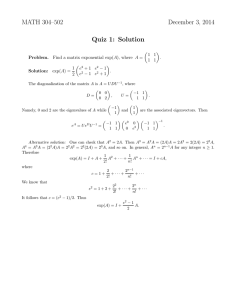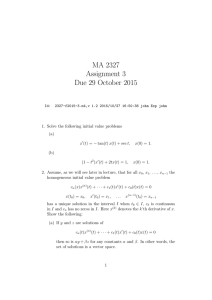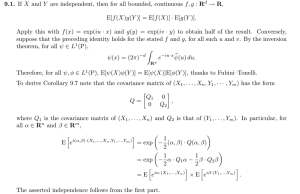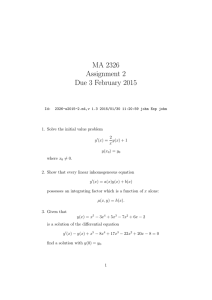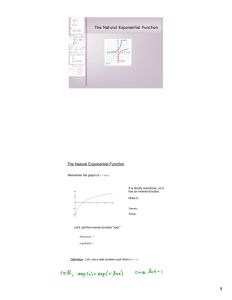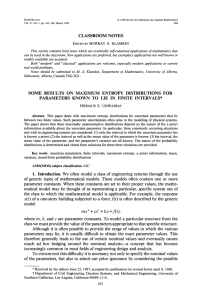Log transformation.docx
advertisement
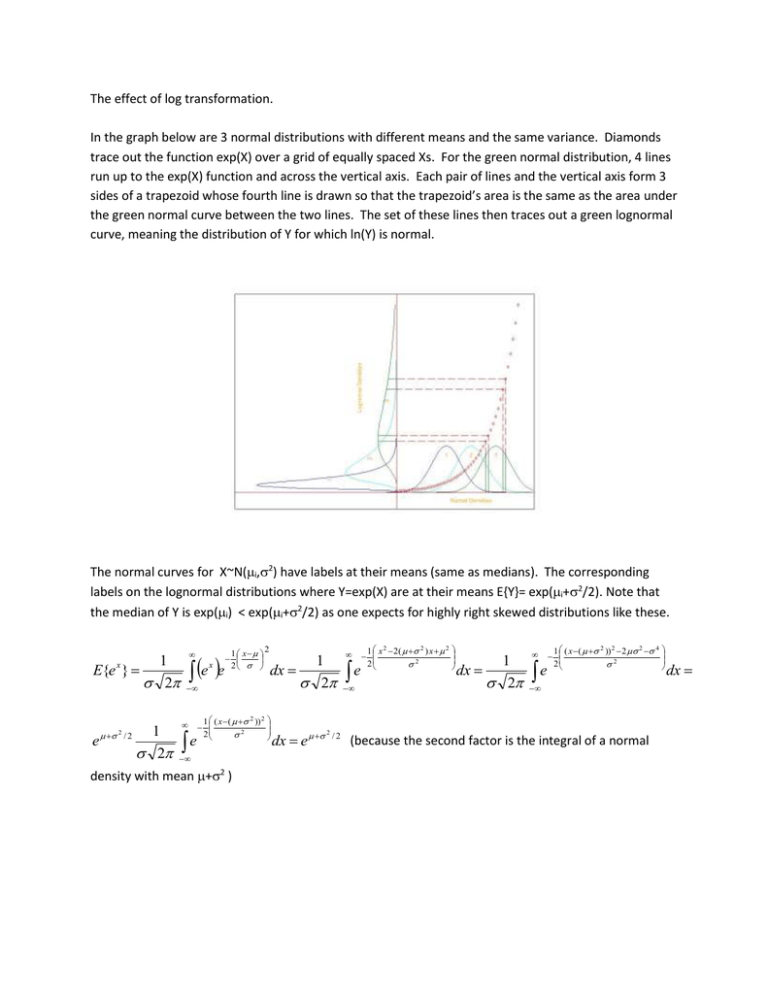
The effect of log transformation.
In the graph below are 3 normal distributions with different means and the same variance. Diamonds
trace out the function exp(X) over a grid of equally spaced Xs. For the green normal distribution, 4 lines
run up to the exp(X) function and across the vertical axis. Each pair of lines and the vertical axis form 3
sides of a trapezoid whose fourth line is drawn so that the trapezoid’s area is the same as the area under
the green normal curve between the two lines. The set of these lines then traces out a green lognormal
curve, meaning the distribution of Y for which ln(Y) is normal.
The normal curves for X~N(i,2) have labels at their means (same as medians). The corresponding
labels on the lognormal distributions where Y=exp(X) are at their means E{Y}= exp(i+2/2). Note that
the median of Y is exp(i) < exp(i+2/2) as one expects for highly right skewed distributions like these.
1
E{e x }
2
e
2
1
/2
2
e e
x
1 x 2
2
e
1 ( x ( 2 )) 2
2
2
density with mean +2 )
1
dx
2
dx e
2
/2
e
1 x 2 2 ( 2 ) x 2
2
2
1
dx
2
e
1 ( x ( 2 )) 2 2 2 4
2
2
(because the second factor is the integral of a normal
dx
